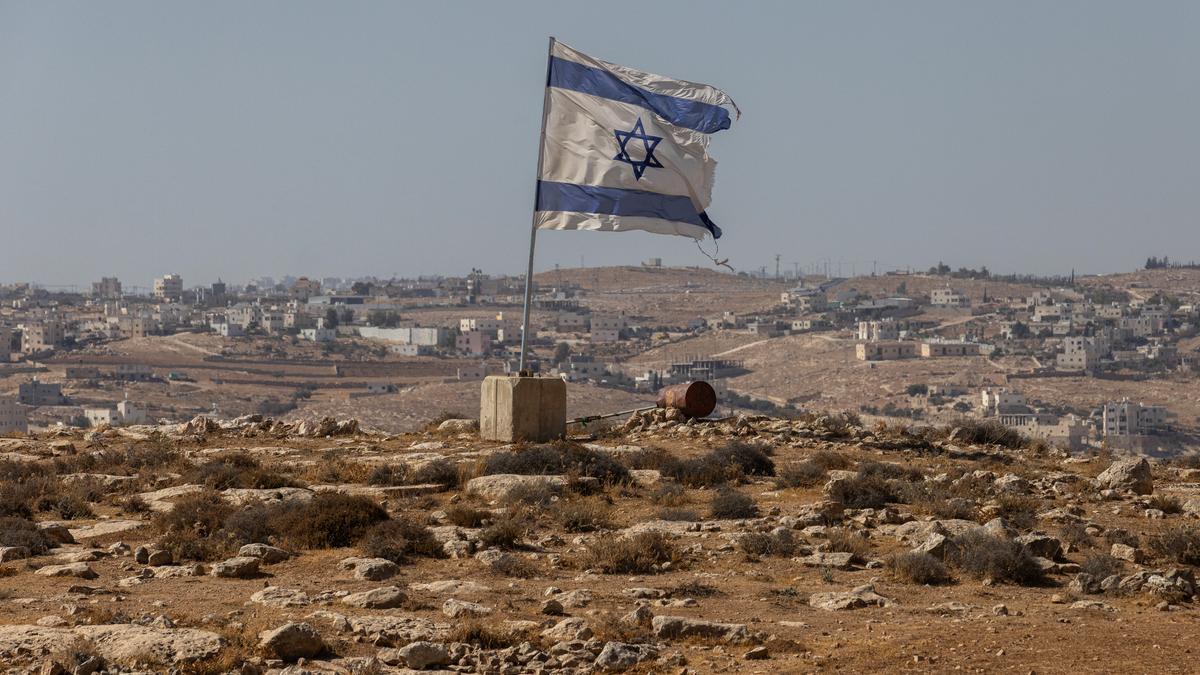A day after Prime Minister Benjamin Netanyahu said that Israel intends to take full control of the Gaza Strip, the country’s security cabinet, on August 8, approved a plan to seize control of Gaza City. Israel then stepped up its bombardment.
While Israel continues to pound one of Palestine’s non-contiguous regions — Gaza — and push its society to the brink, it is slowly asserting “sovereignty” over the other — West Bank. Last month, the Israeli Parliament voted in favour of a historic declaration that officially supported the application of Israeli sovereignty to West Bank, which the Israelis refer to as Judea and Samaria. While the motion carried no immediate legal bearing, it is seen as a political step towards annexation.
In July 2024, Israel had declared that it was opposed to the establishment of a Palestinian state west of the Jordan river. This time, as the Knesset voted in favour of the non-binding motion, its speaker declared, “In 1967, the occupation did not start, it ended. That is the historical truth, and the one and only way to reach genuine peace is from [a position of] power.”
While West Bank has been under Israeli occupation since 1967, data shows that Israel’s position of power over the West Bank has intensified since October 7, 2023, with a record number of displacements, settler attacks, and a stifled economy. Settler attacks in this analysis only involves incidents of violence, intimidation or trespass by Israeli settlers against Palestinians in West Bank.
More than 600 Palestinians have been killed by Israeli forces or settler attacks in West Bank since 2024. This is 28% of all Palestinians killed in the region in nearly two decades. The chart shows the number of Palestinians killed by Israeli forces or settlers in the West Bank
The number of attacks by Israeli settlers, which either resulted in casualties or damages to property, surged post-2023. The chart shows the attacks by Israeli settlers against Palestinians that resulted in casualties and/or property damage
West Bank has witnessed 3,500 such attacks since 2023. This accounted for 40% of all attacks by Israeli settlers on Palestinians in the last two decades. In 2024, this figure climbed to an all-time high in nearly two decades. Survey data from the Israel Democracy Institute, as shown in the table below, shows over 40% Israelis think that settlers who engaged in violence are treated very leniently by the Israeli forces.
Respondents were answering the question “How are the security forces and enforcement agencies treating settlers involved in violent acts against Palestinians in the West Bank /Judea and Samaria?”
The region also saw a high number of displacements of Palestinians in the 2023-2025 period due to Israeli military operations, or settler violence, or access restrictions, or demolitions. The United Nations on July 15 this year said that displacement in West Bank had hit levels not seen since the start of Israel’s occupation nearly 60 years ago.
More than 4,000 people were displaced from West Bank in 2024 — the highest number recorded since 2009. Additionally, 29,338 Palestinians have been displaced due to operations by Israeli forces in the Jenin and Tulkaram camps in the northern region of West Bank in 2025.
The chart below shows the number of Palestinians displaced in West Bank due to Israeli military operations or settler violence
Data also shows that more than 3,000 Palestinian homes and other structures have been either demolished, seized, or sealed since 2023 in West Bank. The chart shows the number of Palestinian homes/structures demolished, seized, or sealed in West Bank every year.
More than a hundred outposts were newly built since 2023 in West Bank. Outposts refer to Israeli settlements, considered illegal even under Israeli law. In 2024 alone, 61 such outposts were built — the highest in a year since 1990. The chart shows the number of outposts established since the 1990s in the West Bank
With the number of illegal settlers increasing to more than 5 lakh in 2023, from less than 5,000 in 1977, the situation in West Bank already echoes the Knesset speaker’s statement from last month. He said, “We are here to stay, and the Knesset has said this by a large majority.”
The data for the charts are sourced from the UN OCHA, Peace Now, and the Israel Democracy Institute
Published – August 15, 2025 08:00 am IST


